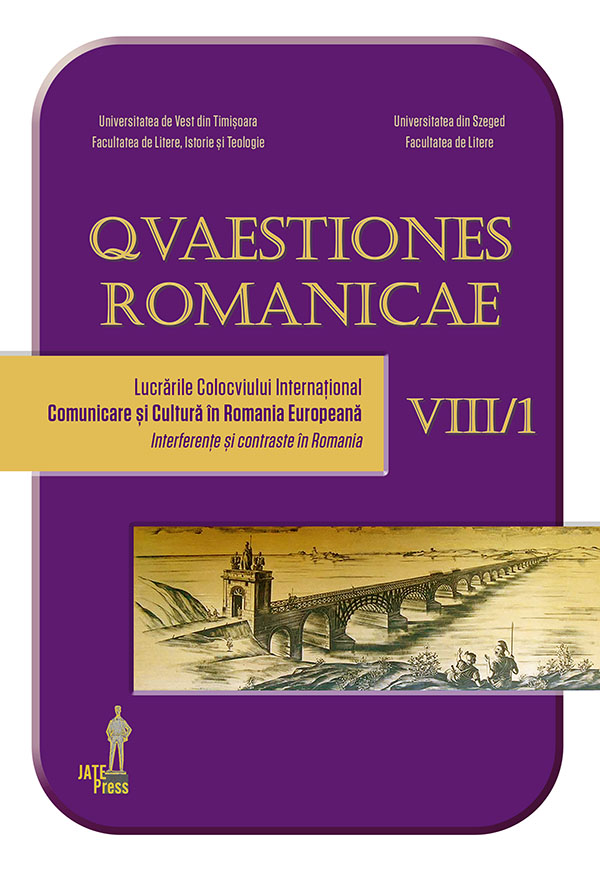Confluencias románico-balcánicas en la literatura oral rumana
Abstract: (Romanic-Balkan Confluences in Romanian Oral Literature) Within the territory delimited by the Carpathians, the Danube and the ancient Pontus Euxin, there is nowadays Romania, a country whose linguistic roots go back to vulgar Latin, although, due to its geographical and political location, they have been impregnated by Balkan influences. In this context and counting on a double cultural specificity, both of Byzantine and Roman origin, the totality of creations, fruit of the wisdom of the people, has highlighted such confluence. We start from the idea that both cultural mythology and oral literature, as a significant part of folkloric creation, have represented the characteristics that shaped the spirit of national and regional identity. In this way, Romanian oral literature, both oral and eclectic, has revealed a spirituality which generously exceeds the frontiers. Therefore, the present paper does not aim at an exhaustive analysis of the motives and themes of the Romanian culture, but, rather to approach the specific Romanian culture from the perspective of the Romanic-Balkan confluences. Among them, we will emphasize the fragile geographical location between the West and the East, the Roman and Byzantine cultural heritage and the importance of the binomial history and religion for certain forms of modern Romanian literary thought.
Keywords: Romanic, Balkan, Oral Literature, myth, anthropocentrism
Resumen: Dentro del territorio delimitado por los Cárpatos, el Danubio y el antiguo Pontus Euxin se halla hoy en día Rumanía, país cuyo arraigo lingüístico se remonta al latín vulgar, aunque, debido a la ubicación geográfica y política, se ha visto impregnado por influencias balcánicas. En este contexto y contando con una doble especificidad cultural, tanto de proveniencia bizantina como románica, la totalidad de creaciones, fruto de la sabiduría del pueblo, ha venido manifestándose bajo tal confluencia. Partimos de la idea de que tanto la mitología cultural, como la literatura oral, en su calidad de parte significativa de la creación folclórica, han sabido expresar las características del espíritu de la identidad nacional y regional. De esta manera, a veces castiza, y otras veces, ecléctica, la literatura oral rumana ha revelado una espiritualidad que superó con generosidad las fronteras naturales. Por tanto, el presente trabajo no se plantea un análisis exhaustivo de los motivos y temas representativos de la cultura rumana, sino, más bien aproximarse a lo específico rumano desde la perspectiva de las confluencias románico-balcánicas. Entre ellas, haremos hincapié en la frágil ubicación geográfica entre Occidente y Oriente, en la herencia cultural románica y bizantina y en la importancia del binomio historia y religión para ciertas formas de pensamiento literario rumano moderno.
Palabras clave: Románico, balcánico, literatura oral, mito, antropocentrismo.
